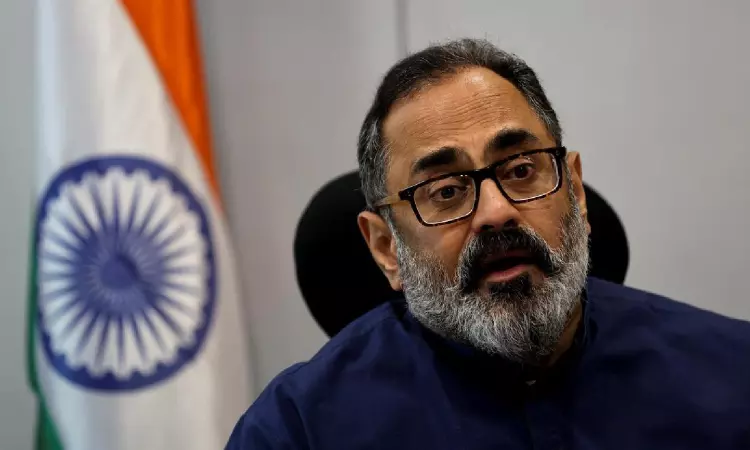Digital India Act unlikely before next general election: MoS
Speaking at the Global Technology Summit 2023, the minister, however, said that the rules for the Digital Personal Data Protection Act will be out later this month for consultation and are expected to be notified by the end of December or early January.

Minister of State for Electronics and Information Technology Rajeev Chandrasekhar (Reuters)
NEW DELHI: The government may not be able to put in place the Digital India Act, which aims to replace over 23 years old IT Act 2000, before the next general election, as there is not much time left for extensive consultation, Minister of State for Electronics and IT Rajeev Chandrasekhar said on Wednesday.
Speaking at the Global Technology Summit 2023, the minister, however, said that the rules for the Digital Personal Data Protection Act will be out later this month for consultation and are expected to be notified by the end of December or early January.
Chandrasekhar said, the existing IT Act doesn’t even have the word internet and there is a consensus that it can be safely superseded and replaced. “The successor Act to that is something called the Digital India Act, which is a work in progress. We have the draft ready and a lot of work has gone into it.
“I suspect that before the next elections, we will not be able to legislate it because one of the things that the Prime Minister insists on is that we need every digital legislation to be extensively consulted. Therefore, I don’t think we have enough time to get that done, “Chandrasekhar said.
The proposed Digital India Act (DIA) has a lot of focus on the online segment. The proposed Digital India Act will focus on making the internet open with rules to check on the dominance of certain players, focus on online safety and user harm with provisions like age-gating by regulating addictive technology, discretionary moderation of fake news by social media, define and regulate emerging technologies etc.
The DIA also proposed stringent regulation for privacy-invasive devices such as spy camera glasses, and wearable tech by adding know-your-customer rules for retail sales backed by appropriate criminal law sanctions.
Talking about emerging technologies, Chandrasekhar said India’s approach towards AI is around emphasising its role in transforming lives and enhancing good governance.
“I want to make it clear that India’s position is not to overtly demonise AI by solely viewing it through the prism of safety and trust. We consider AI to be the biggest and most significant invention of our times,” Chandrasekhar said.
One of the things PM Modi insists on is that we need every digital legislation to be extensively consulted. Therefore, I don’t think we have enough time... — Rajeev Chandrasekhar, IT minister
Panel to set guidelines on seizure of e-devices
The Centre on Wednesday told the Supreme Court that a committee is being constituted and guidelines will be framed regarding the seizure of electronic devices such as phones and laptops by investigating agencies.
The apex court had on November 7 asked the Centre to put in place guidelines on the seizure of electronic devices of individuals, particularly media professionals, and had termed it a serious matter.
“In this matter, I was to come back with guidelines. A committee is being set up and we will come out with guidelines,” Additional Solicitor General (ASG) S V Raju, appearing for the Centre, told the court.



